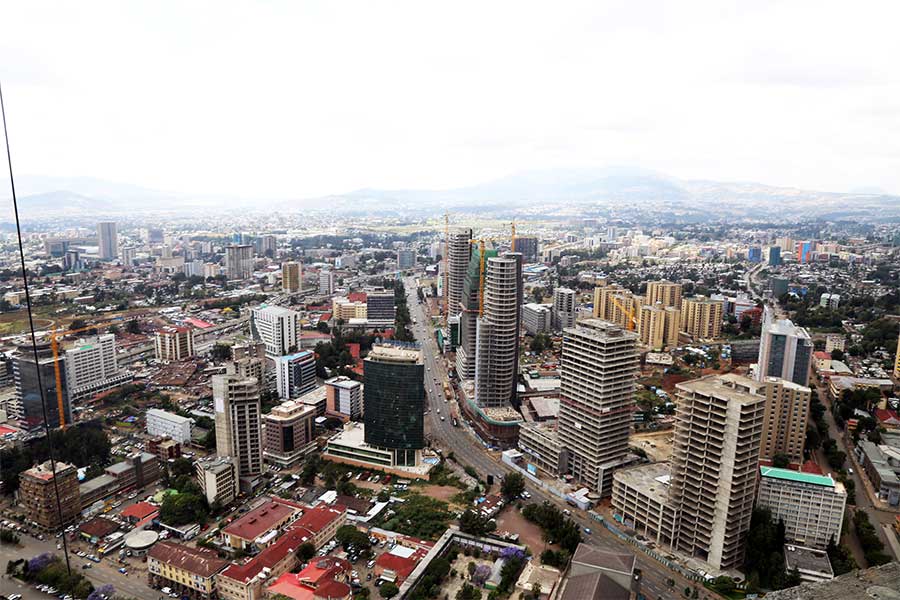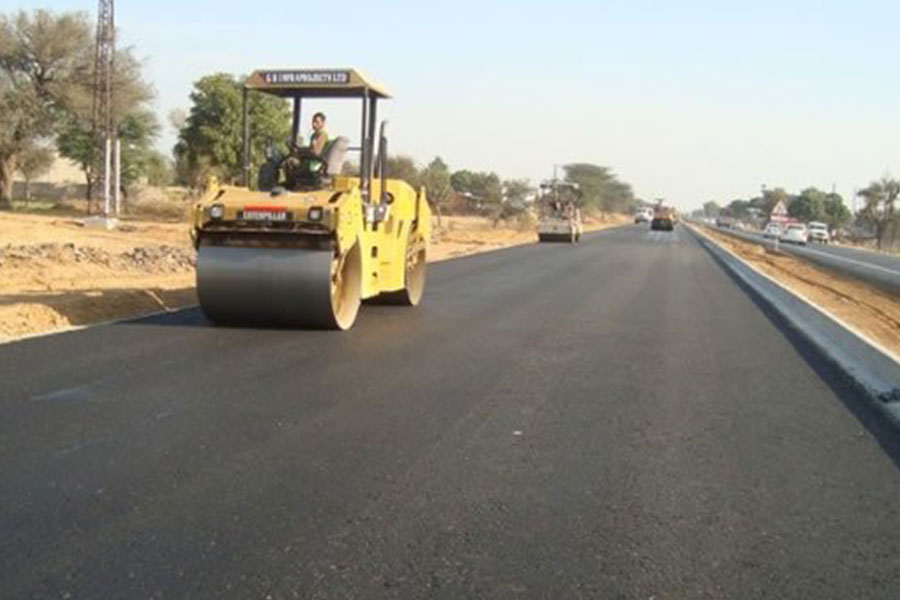
Fortune News | Jul 18,2021
The Chinese government may be reluctant to disburse part of the loan that pays for a road construction on the southern gate of Addis Abeba. However, Moges Tibebu, head of the city’s roads authority, is determined to reboot the construction of the 10Km-road linking Qality and Tulu Dimtu, tapping on taxpayers’ money.
Moges received a nod last week from higher-ups in the City Administration after the city council approved a 100 billion Br budget for the current fiscal year. Over half of the budget has been appropriated for capital expenditures, and 41 billion Br is earmarked for recurrent spending.
The Roads Authority, expected to venture on 20 new projects this year, accounts for 15pc of the capital budget. Officials have allocated 267 million Br to the Qality-Tulu Dimtu corridor this year.
“The construction work will resume by September,” Moges toldFortune.
The road is part of a project connecting the capital to Modjo Dry Port, a vital cog in the country’s trade corridor.
Work kicked off in 2017, with the China Communications Construction Company (CCCC) awarded the 2.5 billion Br contract, incorporating six bridges. Eng. Zewdie Eskinder & Co Plc was hired to supervise the project.
The cost of the much-touted project was partly covered by 103 million dollars in loans received from the Export-Import (Exim) Bank of China. The construction company was contracted for a price tag of nearly 230 million Br a kilometre, placing the project high on the list of the capital’s most expensive roads. The road was scheduled to open to traffic nearly two years ago, but progress has been impeded by China’s Exim Bank’s decision to suspend 339 million dollars in credit disbursements as the Chinese government reviews Ethiopia’s debt standing.
Ethiopia is one of the three African countries that has applied for external debt restructuring under the G20 framework. A finance committee China cochairs with France began looking into the size and viability of Ethiopia’s external debt last week, where State Minister for Finance, Eyob Tekalegn (PhD), attended.
China’s suspension of the loan disbursement has affected eight large infrastructure projects, including the Modjo-Hawassa Expressway’s final segment from Arsi Negele to Hawassa towns. A power transmission project for the capital’s Bole Lemi and Qilinto industrial parks also faces delays.
During an address to Parliament last month, Prime Minister Abiy Ahmed (PhD) pledged the government would cover the cost of the Qality road project from its coffers if the Exim Bank failed to resume disbursements. The corridor is more than halfway done, according to Moges.
Moges was appointed to run the city’s transport authority in 2018. Before assuming his current office, he had served as head of the Construction Projects Management Institute and director of contract administration at the former Ethiopian Roads Authority (ERA). The Addis Abeba City Roads Authority has constructed 115Km of asphalt roads over the past three years, bringing the city’s asphalted road network to 2,500Km.
Fikre Alebachew, deputy head of IFH Engineering Plc, a subsidiary of the Chinese contractor, confirmed the project is to start soon. However, outstanding issues requiring consultations with the Authority remain. The escalated construction material prices since the project was put on hold a year ago is a prominent issue.
“The project cost should be adjusted,” said Fikre.
The Chinese contractor is not alone.
Ballooning costs for construction inputs have been a major concern for the construction industry. The problem shows no signs of ebbing, pushing contractors to plead for cost adjustments to shield themselves from market vagaries. Cement prices, notably, have surged over the past two years, retailing for 1,500 Br in the Megenagna area - a cement hub - last week. It is more than double the price of a year ago. Federal authorities are pressed to approve the disbursal of billions of Birr in price adjustments to hundreds of public projects a month ago.
Moges plans to take a similar measure for projects in the capital, despite the Authority having adjusted projects’ initial costs no less than three times over the past four years.
“We’ll decide on the adjustments after consulting with the contractors,” he said.
Abebe Dinku (PhD), a professor of civil engineering at Addis Abeba University, foresees a large-scale project like the Qality-Tulu Dimtu corridor will require a price adjustment nearly equivalent to the initial projected cost.
“Unless it’s addressed quickly, it’ll bleed the government’s coffer,” he said.
Moges also plans to finance the construction of the 11km Qality-Qilinto ring road project, which was awarded to CCCC in 2017. The Authority has earmarked 336 million Br as investment backing for the project, which launched with an initial projected cost of 2.33 billion Br. The road was expected to open in 2020, but progress stands at less than three-quarters done.
PUBLISHED ON
[ VOL
, NO
]

Fortune News | Jul 18,2021

Radar | Jan 23,2021

Agenda |

Fortune News | Oct 30,2022

Featured | Jan 11,2020

Radar | Mar 23,2019

Radar | Oct 24,2020

Radar | Nov 05,2022

Radar | Jun 08,2019

Fortune News | Feb 05,2022

Dec 22 , 2024 . By TIZITA SHEWAFERAW
Charged with transforming colossal state-owned enterprises into modern and competitiv...

Aug 18 , 2024 . By AKSAH ITALO
Although predictable Yonas Zerihun's job in the ride-hailing service is not immune to...

Jul 28 , 2024 . By TIZITA SHEWAFERAW
Unhabitual, perhaps too many, Samuel Gebreyohannes, 38, used to occasionally enjoy a couple of beers at breakfast. However, he recently swit...

Jul 13 , 2024 . By AKSAH ITALO
Investors who rely on tractors, trucks, and field vehicles for commuting, transporting commodities, and f...

Oct 11 , 2025
Ladislas Farago, a roving Associated Press (AP) correspondent, arrived in Ethiopia in...

Oct 4 , 2025
Eyob Tekalegn (PhD) had been in the Governor's chair for only weeks when, on Septembe...

Sep 27 , 2025
Four years into an experiment with “shock therapy” in education, the national moo...

Sep 20 , 2025
Getachew Reda's return to the national stage was always going to stir attention. Once...